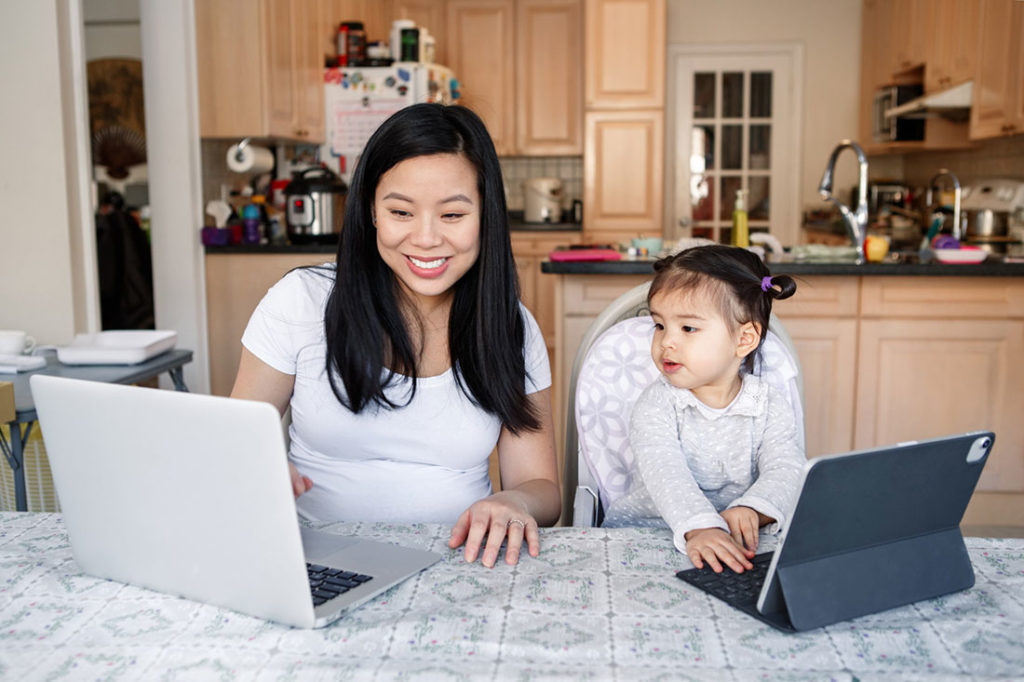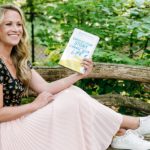It was a Tuesday morning this past spring.
Michael and I had dropped the kids off at school and were heading out to The Hamptons for 36 hours alone. We were feeling pretty grateful, especially after a long year together with the kids, to leave them with their babysitter and have a little time to ourselves.
We were about 45 minutes outside of New York City when Michael’s phone rang. It was an unknown number with an NYC area code. We looked at each other. This wasn’t good. Most spam calls come from our old area codes; spammers haven’t figured out we moved years ago—this was legit.
Michael answered. Sure enough, it was the school nurse. My heart simultaneously sank and raced. Ask any parent: A call from the school nurse is never good. And during a pandemic!? Since almost anything counts as a possible COVID symptom, it’s downright terrifying. A single allergy sniffle could send your life into complete chaos.
In fact, this was a specific conversation we had to have with our daughter when the kids returned to in-person school. In years prior, she would go to her teachers with her big brown eyes and sweet little freckle-face and tell them she had a headache, a belly ache or an itchy throat and they would send her to the nurse’s office. The nurse usually called her bluff, but we had to make it very clear to our girl that unless she really did have a headache, a belly ache or an itchy throat, she wasn’t allowed to fake it, ever.
“This is very serious stuff,” we warned her. She understood.
And there we were. On our way out of town for the first time in forever, and the nurse was already calling. I held my breath in the passenger seat, unable to read Michael’s poker face responses. The conversation was brief, and at the end Michael said, “Well, thanks for letting us know…” and hung up.
“What happened?!” I blurted out.
Apparently, our daughter had gone to the nurse’s office earlier because, “… she said she poked her eye at home and was convinced her eye was bleeding.” The nurse sent her back to the classroom because her eye was in fact not bleeding (and for the record, I was with her all morning and there were zero instances of eye-poking), “… but I didn’t want her to get home and tell you about the bloody eye and then you wonder why I never called.”
The next day, around the same time, Michael received another call from a local NYC area code. Yes, it was the nurse. Our daughter had come to the office, again. This time “… she said she strained her leg jumping rope on the playground.” The nurse iced the unidentifiable injury and chatted with my daughter as she did.
“Your daughter mentioned you went on a trip. She asked if I was going to call you to have you come back to get her.”
Michael ended the call and we looked at each other. “I think we have a case of a girl who’s used to being together all the time.”
In my excitement for a taste of normalcy, I’d missed the fact that “normal” used to mean being apart. Normal, at least for our family, meant me traveling. It meant missing things and making the best of it. In our house, normal meant more FaceTime calls, not fewer.
As eager as I was to “get back to normal,” I had to admit that in many ways, our new normal was better. Our daughter’s trips to the nurse were likely an unconscious protest to things “getting back to normal.”
I couldn’t blame her.
And though no parent ever wants a call from the school nurse, I was grateful for the reminder. Grateful and proud, because the nurse also mentioned she was impressed our daughter had found her way to the office not once, but twice with symptoms unrelated to the pandemic illness.
I guess she really did understand.
This article originally appeared in the September/October 2021 issue of SUCCESS magazine.
Photo by @Hanni/Twenty20











